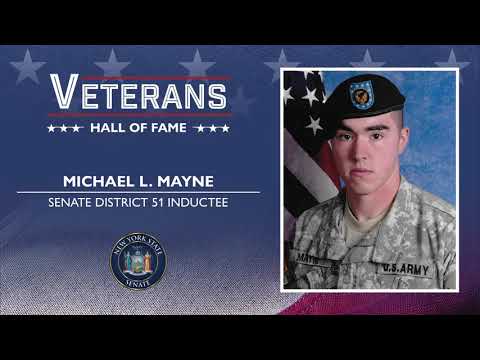
Make On Time Budget The Rule, Not Exception
The New York State Senate approved a constitutional amendment that will forever end late budgets in this state by enacting reforms that this year helped lead to an on time budget for the first time in 20 years.
In addition, the Senate gave first passage to a constitutional amendment (S.3195), sponsored by Senator Nicholas Spano (R-C-I-WF, Westchester), that would address concerns raised by the Court of Appeals, regarding the power and authority of the governor and the legislature in the budget process.
The budget reform amendment (S.1), which passed the Senate unanimously last year and has already been approved this year by the Assembly, will go before the voters on the election ballot this November.
The budget reform amendment would provide more time for budget negotiations by requiring an earlier submission of the executive budget; It would provide for greater detail and more disclosure in the budget; The plan calls for a contingency budget to automatically go into effect if a new budget is not adopted by the May 1 deadline; The contingency budget would continue the previous fiscal year budget forward until it is changed by the legislature.
"This budget reform amendment was the model we followed this year that lead to approval of a new budget before the deadline, a feat we have been unable to accomplish in two decades," Senate Majority Leader Joseph L. Bruno said. "New Yorkers know the negative impact of late budgets, and I’m confident they’ll approve this plan to ensure that state budgets are never late again."
"On-time budgets need to become the rule in Albany, not the exception to the rule. The budget reform bill we’re passing today will have a positive impact on the legislature’s ability to negotiate budgets in the future. What’s more, the budget reform constitutional amendement will
ensure that voters will have a chance to let their voices be heard regarding reform in November," said Senator Owen Johnson (4th Senate District, Babylon), chairman of the Finance Committee.
The second constitutional amendment to be acted on today would ensure that the executive budget submitted by the governor and acted upon by the legislature is clearly itemized, addresses only fiscal matters and is not used to circumvent existing statutory, non-fiscal law. The amendment would require passage by a separately-elected legislature to be placed on the ballot.
allow the legislature to do more than simply reduce, strike or accept proposals in the governor’s budget that aren’t consistent with state law;
permit the legislature to add items of appropriation to the governor’s budget, based on proposed legislation introduced by the governor but modified or rejected by the legislature; and
require the legislature to explain the fiscal impact of any legislative addition to the governor’s budget proposal and identify its funding.
SUMMARY OF BUDGET REFORM PLAN (S.1 & S.2)
FISCAL YEAR -- The legislation would change the start of state fiscal year from April 1 to May 1. This would first apply to the state budget period starting April 1, 2006 and concluding on April 30, 2007.
EARLY BUDGET SUBMISSION -- The proposed constitutional amendment would require earlier submission of the Executive Budget by January 15th (February 1st for a newly elected governor) and shortens the amendment period from 30 days to 21 days to allow additional time for legislative review.
CONTINGENCY BUDGET -- If a new budget is not adopted by May 1, provisions in both the bill and the constitutional amendment, require the automatic imposition of a contingency budget that would continue the previous year’s budget for the ensuing fiscal year.
The contingency budget would provide the same appropriations, reappropriations, spending and revenue provisions as enacted for the preceding fiscal year, with exceptions that include the following: school aid, public assistance, state employee health insurance and pension costs, debt service and certain federal funds.
Once in effect, the contingency budget will remain in effect until both houses pass a single multiple appropriation bill that alters the contingency budget.
If, after a contingency budget becomes effective, the independent budget office projects that revenues are insufficient to meet disbursements under the contingency budget, uniform reductions must be made to ensure a balanced budget. Exceptions to the uniform reductions include school aid, as well as federally required programs such as public assistance, certain federal funds and constitutionally mandated areas such as state employee health insurance and pension costs and debt service.
AGENCY BUDGET REQUESTS -- The constitutional amendment requires that all agency budget submissions would be made public prior to submission of the Executive Budget.
THREE YEAR FINANCIAL PLAN -- The proposed bill requires a three-year projection by the Executive of the financial impact of any changes to the Executive Budget.
EXPANDED RESERVE FUNDS -- Two reserve funds, equal to six percent, three percent of the general fund and three percent of state funds, would be created to provide funds for May and June school aid payments, and to cushion against unexpected economic downturns, revenue shortfalls and natural disasters. Expanded reserve fund provisions are included in both the bill and the constitutional amendment.
ENHANCED FAST START -- Under the enhanced fast start plan, discussions between the executive and the legislature on forecasts of tax revenues, of Medicaid disbursements, school aid disbursements and of public assistance caseloads would begin on or before December 5th of each year.
TWO YEAR EDUCATION FUNDING -- The bill requires the governor to include a two year appropriation for aid to education in the Executive Budget. The submission would be two separate appropriations for education for the succeeding fiscal year and the next succeeding fiscal year.
HCRA IN BUDGET -- Beginning in SFY 2006-07, the budget reform bill would require the Executive Budget to include all spending related to the Health Care Reform Act.
INDEPENDENT BUDGET OFFICE-- The Independent Budget Office (IBO) would provide the Legislature with detailed information related to the budgetary process including an annual economic and revenue forecast, a three year fiscal outlook, quarterly reports on state revenues, as well as fiscal impact statements on proposed legislation. All reports of the IBO would be made available to the public.
The director of the IBO will be appointed jointly by the speaker of the Assembly and the temporary president of the Senate. The director will serve a two year term and have the authority to appoint personnel and procure services of experts and consultants as necessary.
There will also be an IBO Advisory Committee consisting of one person appointed by each of the following: the chair and ranking members of the Assembly Ways and Means Committee and the Senate Finance Committee and six members jointly appointed by the speaker of the Assembly and the temporary president of the Senate. Members of the advisory committee will receive no compensation.
ADDITIONAL FINANCIAL REPORTING -- The budget reform plan would require additional detail and financial reporting in the Executive Budget relating to the financial plan.
###



